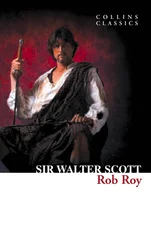Sir Scott - Ivanhoe
Здесь есть возможность читать онлайн «Sir Scott - Ivanhoe» — ознакомительный отрывок электронной книги совершенно бесплатно, а после прочтения отрывка купить полную версию. В некоторых случаях можно слушать аудио, скачать через торрент в формате fb2 и присутствует краткое содержание. Жанр: Старинная литература, на английском языке. Описание произведения, (предисловие) а так же отзывы посетителей доступны на портале библиотеки ЛибКат.
- Название:Ivanhoe
- Автор:
- Жанр:
- Год:неизвестен
- ISBN:нет данных
- Рейтинг книги:5 / 5. Голосов: 1
-
Избранное:Добавить в избранное
- Отзывы:
-
Ваша оценка:
- 100
- 1
- 2
- 3
- 4
- 5
Ivanhoe: краткое содержание, описание и аннотация
Предлагаем к чтению аннотацию, описание, краткое содержание или предисловие (зависит от того, что написал сам автор книги «Ivanhoe»). Если вы не нашли необходимую информацию о книге — напишите в комментариях, мы постараемся отыскать её.
Ivanhoe — читать онлайн ознакомительный отрывок
Ниже представлен текст книги, разбитый по страницам. Система сохранения места последней прочитанной страницы, позволяет с удобством читать онлайн бесплатно книгу «Ivanhoe», без необходимости каждый раз заново искать на чём Вы остановились. Поставьте закладку, и сможете в любой момент перейти на страницу, на которой закончили чтение.
Интервал:
Закладка:
But the Friar, afraid perhaps of again giving offence by continuing the conversation in too jocose a style—a false step to be particularly guarded against by those who converse with monarchs—bowed profoundly, and fell into the rear.
At the same time, two additional personages appeared on the scene.
CHAPTER XLI
All hail to the lordlings of high degree,
Who live not more happy, though greater than we!
Our pastimes to see,
Under every green tree,
In all the gay woodland, right welcome ye be.
MACDONALD 1
The new-comers were Wilfred of Ivanhoe, on the prior of Botolph’s palfrey, and Gurth, who attended him, on the knight’s own war-horse. The astonishment of Ivanhoe was beyond bounds when he saw his master besprinkled with blood, and six or seven dead bodies lying around in the little glade in which the battle had taken place. Nor was he less surprised to see Richard surrounded by so many silvan attendants, the outlaws, as they seemed to be, of the forest, and a perilous retinue therefore for a prince. He hesitated whether to address the King as the Black Knight-errant, or in what other manner to demean himself towards him. Richard saw his embarrassment.
“Fear not, Wilfred,” he said, “to address Richard Plantagenet as himself, since thou seest him in the company of true English hearts, although it may be they have been urged a few steps aside by warm English blood.”
“Sir Wilfred of Ivanhoe,” said the gallant outlaw, stepping forward, “my assurances can add nothing to those of our sovereign; yet, let me say somewhat proudly, that of men who have suffered much, he hath not truer subjects than those who now stand around him.”
“I cannot doubt it, brave man,” said Wilfred, “since thou art of the number. But what mean these marks of death and danger—these slain men, and the bloody armour of my Prince?”
“Treason hath been with us, Ivanhoe,” said the King; “but, thanks to these brave men, treason hath met its meed. But, now I bethink me, thou too art a traitor,” said Richard, smiling—“a most disobedient traitor; for were not our orders positive that thou shouldst repose thyself at St. Botolph’s until thy wound was healed?”
“It is healed,” said Ivanhoe—“it is not of more consequence than the scratch of a bodkin. By why—oh why, noble Prince, will you thus vex the hearts of your faithful servants, and expose your life by lonely journeys and rash adventures, as if it were of no more value than that of a mere knight-errant, who has no interest on earth but what lance and sword may procure him?”
“And Richard Plantagenet,” said the King, “desires no more fame than his good lance and sword may acquire him; and Richard Plantagenet is prouder of achieving an adventure, with only his good sword, and his good arm to speed, than if he led to battle an host of an hundred thousand armed men.”
“But your kingdom, my Liege,” said Ivanhoe—“your kingdom is threatened with dissolution and civil war; your subjects menaced with every species of evil, if deprived of their sovereign in some of those dangers which it is your daily pleasure to incur, and from which you have but this moment narrowly escaped.”
“Ho! ho! my kingdom and my subjects!” answered Richard, impatiently; “I tell thee, Sir Wilfred, the best of them are most willing to repay my follies in kind. For example, my very faithful servant, Wilfred of Ivanhoe, will not obey my positive commands, and yet reads his king a homily, because he does not walk exactly by his advice. Which of us has most reason to upbraid the other? Yet forgive me, my faithful Wilfred. The time I have spent, and am yet to spend, in concealment is, as I explained to thee at St. Botolph’s, necessary to give my friends and faithful nobles time to assemble their forces, that, when Richard’s return is announced, he should be at the head of such a force as enemies shall tremble to face, and thus subdue the meditated treason, without even unsheathing a sword. Estoteville and Bohun will not be strong enough to move forward to York for twenty-four hours. I must have news of Salisbury from the south, and of Beauchamp in Warwickshire, and of Multon and Percy in the north. The Chancellor must make sure of London. 2Too sudden an appearance would subject me to dangers other than my lance and sword, though backed by the bow of bold Robin, or the quarter-staff of Friar Tuck, and the horn of the sage Wamba, may be able to rescue me from.”
Wilfred bowed in submission, well knowing how vain it was to contend with the wild spirit of chivalry which so often impelled his master upon dangers which he might easily have avoided, or rather, which it was unpardonable in him to have sought out. The young knight sighed, therefore, and held his peace; while Richard, rejoiced at having silenced his counsellor, though his heart acknowledged the justice of the charge he had brought against him, went on in conversation with Robin Hood. “King of outlaws,” he said, “have you no refreshment to offer to your brother sovereign? for these dead knaves have found me both in exercise and appetite.”
“In troth,” replied the outlaw, “for I scorn to lie to your Grace, our larder is chiefly supplied with—” He stopped, and was somewhat embarrassed.
“With venison, I suppose?” said Richard, gaily; “better food at need there can be none; and truly, if a king will not remain at home and slay his own game, methinks he should not brawl too loud if he finds it killed to his hand.”
“If your Grace, then,” said Robin, “will again honour with your presence one of Robin Hood’s places of rendezvous, the venison shall not be lacking; and a stoup of ale, and it may be a cup of reasonably good wine, to relish it withal.”
The outlaw accordingly led the way, followed by the buxom gimonarch, more happy, probably, in this chance meeting with Robin Hood and his foresters than he would have been in again assuming his royal state, and presiding over a splendid circle of peers and nobles. Novelty in society and adventure were the zest of life to Richard Cœur-de-Lion, and it had its highest relish when enhanced by dangers encountered and surmounted. In the lion-hearted king, the brilliant, but useless, character of a knight of romance was in a great measure realised and revived; and the personal glory which he acquired by his own deeds of arms was far more dear to his excited imagination than that which a course of policy and wisdom would have spread around his government. Accordingly, his reign was like the course of a brilliant and rapid meteor, which shoots along the face of heaven, shedding around an unnecessary and portentous light, which is instantly swallowed up by universal darkness; his feats of chivalry furnishing themes for bards and minstrels, but affording none of those solid benefits to his country on which history loves to pause, and hold up as an example to posterity. But in his present company Richard showed to the greatest imaginable advantage. He was gay, good-humoured, and fond of manhood in every rank of life.
Beneath a huge oak-tree the silvan repast was hastily prepared for the King of England, surrounded by men outlaws to his government, but who now formed his court and his guard. As the flagon went round, the rough foresters soon lost their awe for the presence of Majesty. The song and the jest were exchanged, the stories of former deeds were told with advantage; and at length, and while boasting of their successful infraction of the laws, no one recollected they were speaking in presence of their natural guardian. The merry king, nothing heeding his dignity any more than his company, laughed, quaffed, and jested among the jolly band. The natural and rough sense of Robin Hood led him to be desirous that the scene should be closed ere anything should occur to disturb its harmony, the more especially that he observed Ivanhoe’s brow clouded with anxiety. “We are honoured,” he said to Ivanhoe, apart, “by the presence of our gallant sovereign; yet I would not that he dallied with time which the circumstances of his kingdom may render precious.”
Читать дальшеИнтервал:
Закладка:
Похожие книги на «Ivanhoe»
Представляем Вашему вниманию похожие книги на «Ivanhoe» списком для выбора. Мы отобрали схожую по названию и смыслу литературу в надежде предоставить читателям больше вариантов отыскать новые, интересные, ещё непрочитанные произведения.
Обсуждение, отзывы о книге «Ivanhoe» и просто собственные мнения читателей. Оставьте ваши комментарии, напишите, что Вы думаете о произведении, его смысле или главных героях. Укажите что конкретно понравилось, а что нет, и почему Вы так считаете.










